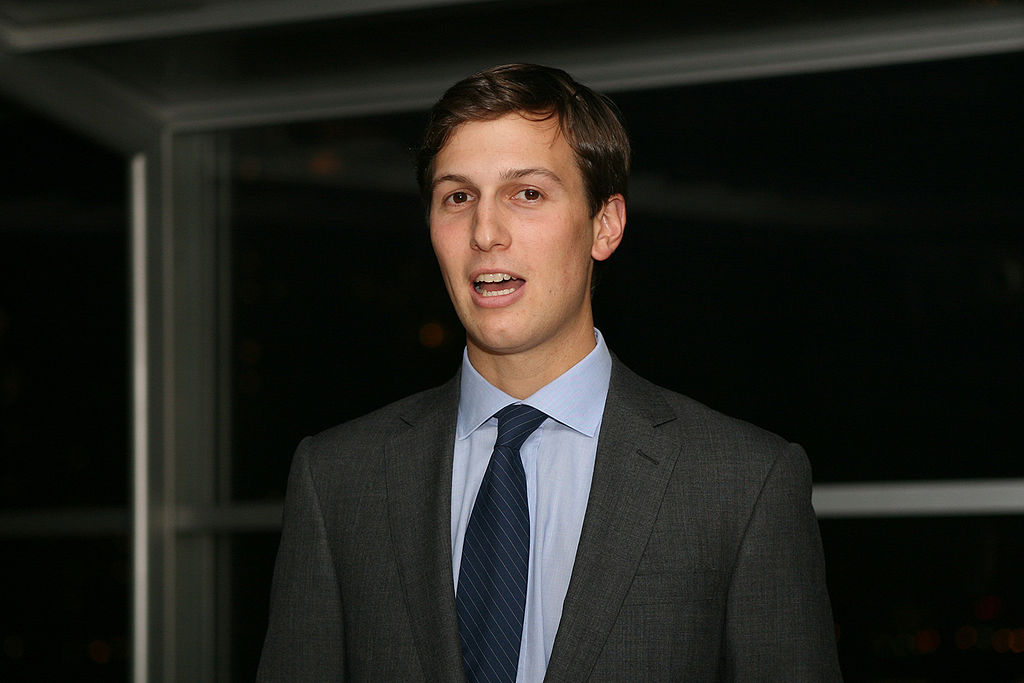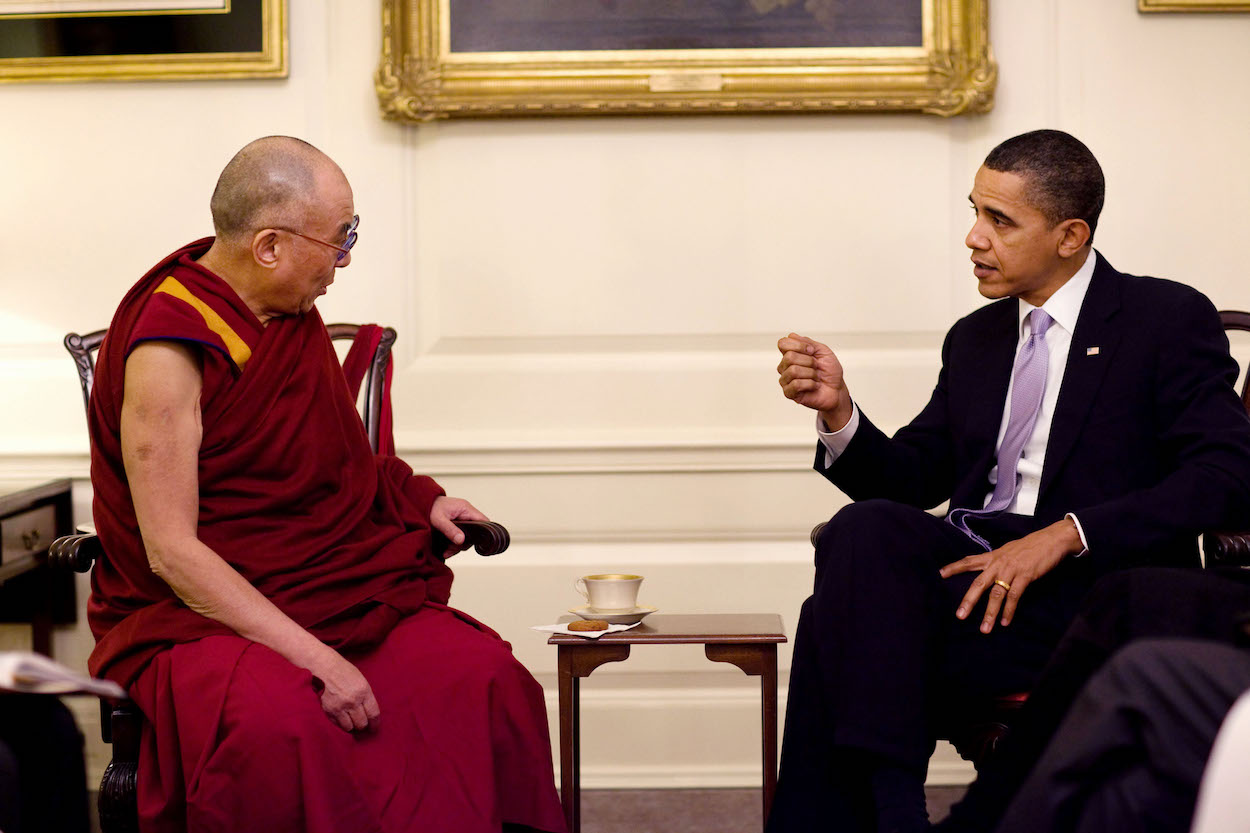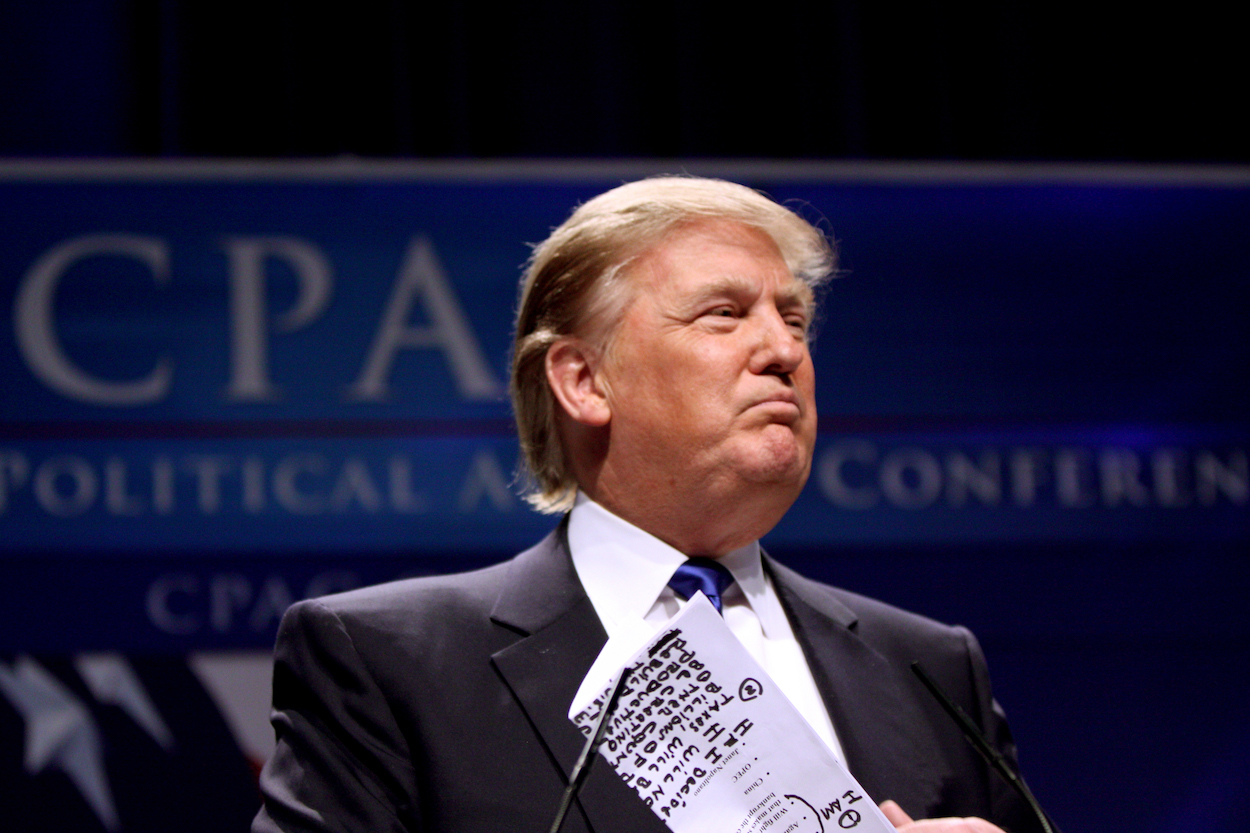by Brian Hioe
語言:
English
Photo Credit: VOA
THE CUTTING OF all US aid to the Tibetan government-in-exile by the Trump administration is perhaps not too surprising, given the Trump administration’s frequent claims that America has spent too much money on costly foreign interventions and needs to withdraw to put American concerns first, rather than fighting others’ wars. Nevertheless, this is a development of which Taiwan need take note, seeing as, historically, Taiwan has often positioned itself alongside Tibet and in recent years Hong Kong in appeals to the international world, seeing as all three share the similarity of claims over their territory by China.
As with the general incoherency of the Trump administration, the Trump administration’s avowed intentions on what its Asia policy would be once it took office were markedly different from when it took office. Subsequently, in its roughly six months in power, its Asia Policy has already seen a number of fluctuations. First Trump claimed during election campaigning that it would withdraw American troops from South Korea and Japan, provoking much worry from the governments of both nations that an impending American withdrawal would pave the path for Chinese dominance of the Asia Pacific, even as there was much ambiguity about that his planned foreign policy administration seemed to filled with hawks against China. But after a high-profile meeting between Trump and Shinzo Abe of Japan and a telephone call between Trump and then-South Korean president Park Geun-Hye, these claims seemingly faded.
 Jared Kushner. Photo credit: Lori Berkowitz/CC
Jared Kushner. Photo credit: Lori Berkowitz/CC
Yet with the apparent loss of power of Steve Bannon and the “Alt-Right” wing of the Trump administration, a summit between Trump and Chinese president Xi Jinping, and the rise of Trump’s son-in-law Jared Kushner within the administration, it seems that Trump may be swinging back towards conciliatory policy with China. In particular, the Kushner family has strong business ties with China, and stands to benefit financially if they can use Jared Kushner’s presence within the Trump administration and apparently pacify Trump’s China policy in order to do business with China.
Can we position the American cutting of funds to the Tibetan government-in-exile, a historical first, in line with this, then? It is hard to say, again, given the incoherent positions of the Trump administration, which sometimes seem to be in a perpetual state of Heraclitean flux. Yet there are some lessons to be taken away from this for Taiwan.
Whatever its shared structural condition with Tibet of threats to its sovereignty from China, Taiwan is geopolitically significant for America in a way Tibet is not. Support for Tibet is primarily a form of soft power. One cannot imagine, for example, arms sales to Tibet having any global impact the way that arms sales to Taiwan are a prominent international issue. Apart from past disastrous attempts by the CIA at training Tibetans to infiltrate China as an insurgency, which are little known, the Tibetan government-in-exile enjoys American support as a way of undermining China’s legitimacy on the world stage, seeing as this highlights China’s willingness to use authoritarian force to put down dissidents against its rule in a particularly powerful way, given the sharp cultural and religious differences between Tibetans and Han Chinese. China, then, comes off as oppressing religious and political freedoms, and America is able to put on a show of supporting democracy of freedom of expression. This is, in some sense, a form of soft power for America and a way of subtly undermining China.
 The Dalai Lama and then-American president Barack Obama. Photo credit: White House/Public Domain
The Dalai Lama and then-American president Barack Obama. Photo credit: White House/Public Domain
However, the Trump administration differs from past presidential administrations sharply. An integral part of American support of Tibet has been human rights discourse, in claiming its actions are to defend the basic, underlying human rights of Tibetans. America uses human rights as a crucial part of the justification for many of its foreign interventions, in claiming that it is acting to secure basic fundamental human rights for the residents of the countries it intervenes into or to establish democracy, the only form of government capable of maintaining fundamental human rights. Oftentimes human rights discourse is the basis for American use of soft power in order to cement its international reputation.
As has been demonstrated multiple times with repeated public praise for authoritarian regimes led by political strongmen who Trump respects on an individual basis, human rights and democracy are far from a concern for the Trump administration. It is not even a moral judgment to claim that the Trump administration does not respect human rights either, whatever its domestic actions, but to point out that the Trump administration has no interest in using human rights discourse to advance American soft power and undermine the international legitimacy of countries at loggerheads with America, such as China. In general, soft power has never been a priority for the Trump administration, which prefers aggressive theatrics on the world stage and the use of force.
Consequently, it is perfectly fine for the Trump administration to cut all American funding to Tibet, given its lack of interest in using Tibet to undermine Chinese political legitimacy on the international stage. While Taiwan may not need fear and, in fact, is treated differently from Tibet by America because of its geopolitical significance in the Asia Pacific for America, rather than its importance in soft power initiatives, Taiwan also has reason to be afraid. Namely, the appeal to American presidential administration on the basis of human rights and America’s obligation to defend human rights no longer has any effect on the Trump administration.
 US president Donald Trump. Photo credit: Gage Skidmore/CC
US president Donald Trump. Photo credit: Gage Skidmore/CC
For example, with its lack of interest in human rights and democracy, if appeals need to be made to the Trump administration, they must be conducted solely on the basis of how Taiwan is useful to America. But this an appeal which obviously leaves open the possibility that America will use Taiwan as a bargaining chip against China. Indeed, beyond a certain point, appealing to America on any other country on the basis of rational interest only runs into limits. After all, China is and always will be many times larger than Taiwan, and defense of Taiwan will rationally not be worth it at a certain point for America or any other nation. China is simply many times larger than Taiwan and will always be so. To act otherwise would simply be to act as an irrational political actor.
And so, America cutting all funding to the Tibetan government-in-exile should be something Taiwan takes note of carefully in terms of its present quandary vis-a-vis the Trump administration. Putting aside the question of the Trump administration’s increasingly friendly attitude towards China with the political rise of Jared Kushner in the Trump administration, either way, the Trump administration cutting aid to Tibet is illustrative of how the administration has no interest in soft power initiatives or the use of human rights discourse to undermine. And while Taiwan could thereby appeal to America on the basis of rational interest, the argument for the defense of Taiwan on the basis of rational interest only goes so far. Appealing only to American state actors regarding calls for the defense of Taiwan is tenuous as ever, then, and the Trump administration has brought this strongly to the fore.

